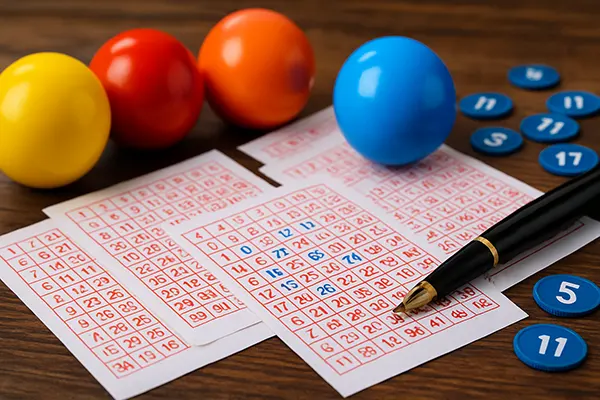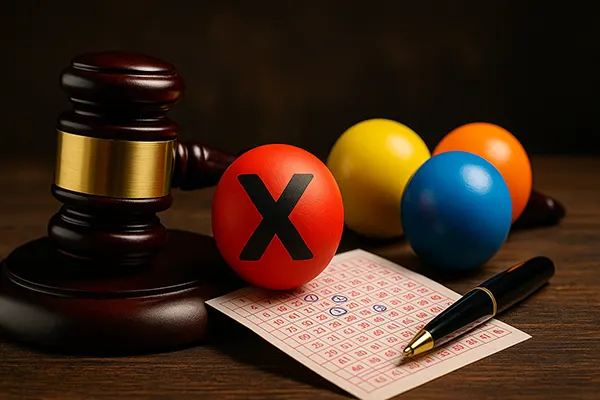
Blacklists and Banned Lotteries: What to Avoid Spending Money On in 2025
Lotteries can appear as an easy chance to change one’s life with a lucky ticket. However, not all lotteries are worth your trust, let alone your money. In 2025, fraudulent and unauthorised lotteries continue to thrive, often targeting vulnerable players with unrealistic promises, no transparency, and no regulatory oversight. This article explores which lotteries should be avoided, how to identify dangerous operators, and what measures governments are taking to protect consumers.
Why Some Lotteries Are Blacklisted in 2025
Blacklisted lotteries are those that have raised serious concerns over fairness, legality, or transparency. These are not merely unsuccessful ventures but operations that actively mislead consumers, deny winnings, or operate without proper licensing. Regulators across the UK and EU have compiled public blacklists to warn citizens of such operators, based on consumer complaints, lack of audit trails, and failure to meet standard lottery practices.
One of the core issues with these lotteries is their lack of traceability. Without a physical address, phone line, or regulated banking partnerships, participants have no channel for disputes. The absence of customer service or refund policies compounds the problem. As a result, these schemes often vanish once they collect enough money.
Some blacklisted names in mid-2025 include entities such as “MegaRich Lotto”, “EuropeGold Millions” and “PrizeVault Global”—all of which lack transparency, licensure, and a verifiable draw process. These names were removed from multiple national directories after official investigations and consumer reports.
Signs a Lottery Should Not Be Trusted
Several red flags can help you spot potentially dangerous lotteries. First, an offer that seems too generous—such as extremely high jackpots with low ticket prices—often signals unsustainable business models or outright scams. Secondly, if the lottery insists on upfront fees to “unlock” winnings, you are likely dealing with a fraudulent operation.
Another key indicator is anonymity. If there is no way to verify who runs the lottery, no customer support, and no information about previous winners or drawing procedures, the chances of a scam are high. Reputable lotteries publish draw results openly, use third-party auditing, and allow participants to see how the draw was conducted.
Additionally, check whether the operator appears in any official registry. The UK Gambling Commission, the European Lotteries Association, and national tax authorities maintain current lists of approved and blacklisted lotteries. If the lottery you’re considering isn’t listed among regulated operators, avoid it entirely.
Government Oversight and Consumer Protection in 2025
In 2025, government regulators in the UK, EU, and North America have stepped up efforts to combat unlicensed and deceptive lottery schemes. This includes new transparency laws, stronger penalties for offshore operators, and increased consumer education campaigns. These measures are designed to support safe gambling and minimise the damage caused by fraudulent lotteries.
The UK Gambling Commission now requires all lottery operators to submit a public financial audit every six months. Furthermore, platforms selling lottery tickets must verify the identity of all operators they work with. This move aims to eliminate shell operations posing as legitimate lotteries. Countries like Germany and France have also harmonised lottery regulations across jurisdictions to prevent exploitation of legal grey zones.
Consumer support initiatives have also improved. Organisations such as Citizens Advice and GamCare now offer detailed online resources and direct assistance to those affected by fraudulent lottery practices. They guide users on filing complaints, seeking refunds, and avoiding repeat victimisation.
How Blacklists Are Compiled and Updated
Blacklists are created through a combination of regulatory audits, public complaints, cross-border investigations, and compliance checks. Each time an entity fails to meet transparency, financial accountability, or legality standards, it risks inclusion in the blacklist. For example, any lottery caught using misleading marketing—such as impersonating national lotteries—is automatically reviewed for enforcement action.
Updates occur quarterly in most countries. Regulators rely on consumer reports submitted via online forms or phone hotlines. These reports are cross-verified with transaction logs, advertising content, and website data. If violations are confirmed, operators are not only blacklisted but can also face criminal prosecution in certain jurisdictions.
Transparency is vital: all updates to national blacklists are made public on official websites, often accompanied by press releases and legal commentary. Consumers are encouraged to check these lists before participating in any new or unfamiliar lottery.

Safer Alternatives and Responsible Play
Not all lotteries are unsafe—many operate with full compliance and contribute significantly to public causes like education, healthcare, and cultural programmes. National lotteries, such as the UK National Lottery and EuroMillions, continue to maintain high standards of transparency, regular audits, and fixed distribution percentages for prize money and charitable contributions.
When choosing a lottery, always opt for those endorsed by national regulators or that operate within clearly defined jurisdictions. Legitimate games will have clear ticket pricing, published rules, and regular public results. They will also provide detailed contact information, customer support access, and dispute resolution processes.
Equally important is practising self-regulation. Use gambling limits, avoid emotional decisions, and never view lottery play as an investment. If you suspect you’re being targeted by a scam or experiencing unhealthy gambling behaviour, contact organisations such as BeGambleAware or your local support centres.
Tips for Verifying a Legitimate Lottery
Start by checking the official licensing database of your country’s gambling authority. Look for verifiable licence numbers, active payment channels with known banks, and transparent draw dates. A lack of any of these is a clear sign to walk away.
Also assess the reputation. Search for reviews on trusted sites and forums that track lottery legitimacy. Be wary of testimonials on the lottery’s own site, as these can be fabricated. Real user experiences across independent platforms offer more accurate insight into trustworthiness.
Finally, ensure that winnings do not come with hidden conditions. Reputable lotteries never ask for additional payment after you’ve won, nor do they require sensitive information beyond your identity verification. Avoid lotteries that request payments to claim a prize—this remains one of the most common fraud schemes worldwide.
